
KTP and Me… Being part of Keep The Promise Coalition has helped me to learn, grow, and be an informed advocate. I have been attending KTP meetings for about four years now, and in that time, I have learned a lot. After several trips to the Legislative Office Building in Hartford, I knew becoming more involved was something I truly felt a desire to do, but how? The Keep The Promise Coalition had the answer in the form of two classes they offer, The Essentials of Legislative Advocacy and Legislative Leadership.
I have taken both and would recommend them to anyone who has ever thought about using their voice to speak out on matters that are important to themselves and their communities. If you read the “who we are section” of their website it says, “KTP quickly became recognized as Connecticut’s leading voice on mental health issues, with more than forty agencies and organizations participating in the coalition.” If you attend any monthly meeting, you’ll soon discover there is so much more within its membership. KTP is a collection of people who come together because we believe in an idea that we can all make a difference in our communities. It is a place where everyone can have a voice, and they are encouraged to use it.
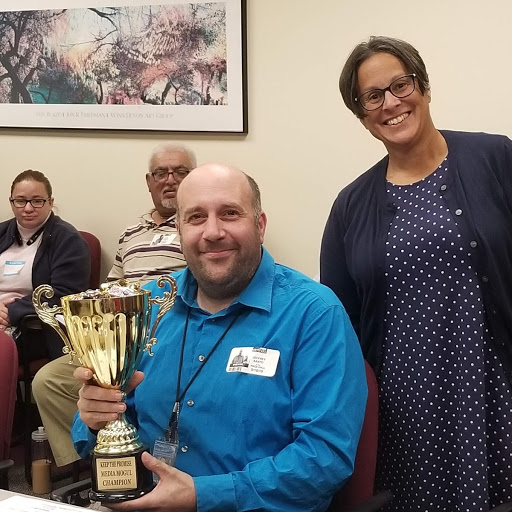
Kathy Flaherty, co-chair of KTP with Jeffrey Santo of RIPPLE as he received the Media Mogal Award. It is awarded to a KTP member for being published, normally a piece relating in some way to the mental health and addiction recovery community. (see Jeff’s article on page 3)
From 1999 to today, this team of dedicated people has excelled at not only educating us about laws that will impact the mental health and addiction recovery community, but they also mobilized us and showed us how to advocate for the things we need to thrive in recovery.
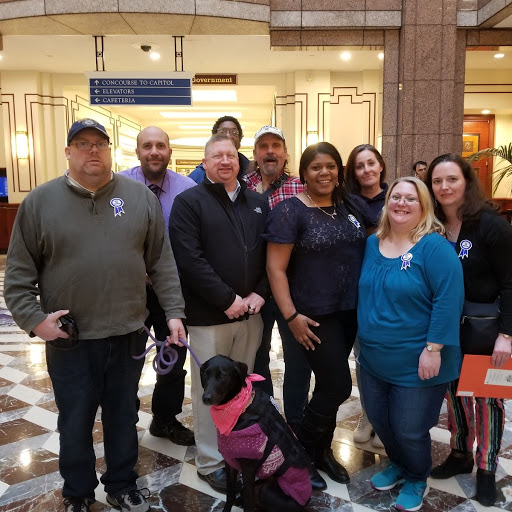
The photo to the left was taken on March 1st, 2019, Jeff, in the purple shirt, happened to be pulled into a group picture with folks from Reliance Health. KTP prepared us to testify before the Appropriations Committee, many of us asking that no more cuts be made to the DMHAS budget. Nearly everyone in the picture is wearing their blue ribbon Keep The Promise button showing that we are all a part of something amazing. We tackle issues that are important to us; we share our experiences and also learn from one another.
I have made a lot of wonderful friends since joining. I have felt welcomed, included, encouraged, and supported… The only thing I have never experienced was feeling alone. On October 30th, 2019 Keep the Promise will host their 20th Anniversary Awards Luncheon.
To help celebrate this milestone, Ripple put forward a concept of what a commemorative button might look like and then submitted a design to KTP. Ripple will create 250 buttons for the occasion and will be on hand to enjoy the festivities. If you would like to know more about KTP’s legislative priorities, events, and trainings, or just how to get involved, please visit their website at www.ctkeepthepromise.org

Page 1
Meet the new members of Team Ripple!

Chris Pochna is Peer with lived experience in both mental health services and addiction recovery. Her journey started in 1988 at the age of 8 years old when she started to battle anorexia mirabilis. Also known as holy anorexia or inedia prodigiosa, an eating disorder in which one starves themselves to acquire some level of spiritual enlightenment or growth. In Chris’s teenage years, she was extremely self-conscious of her physical appearance and began experiencing severe depression. Like many other young adults living with depression at that time, she was prescribed medications by a psychiatrist.
Prozac and Ritalin, which were common, did very little to help, and one caused her to become very sick in the process. With no progress and her depression worsening, she had been prescribed a new drug called Zyprexa in 1998. One of the well-known side effects of this particular drug is weight gain; this made a bad situation worse. A year later she started another battle, this time with oxycontin, and then heroin. In 1999 she made an appointment with the Connecticut Counseling Centers and began the journey to take back her life.
Chris went on methadone and was off three years later, by this point her Anorexia Mirabilis had long since turned to Anorexia Nervosa and plagued her for years to come. During her recovery she held jobs, working first as a security guard, then graduated trade school to be an electrician where she eventually worked on high voltage railroad systems. In her 30’s, she became addicted to pain pills again; this was due to several congenital spinal conditions, as well as Epilepsy. A neurologist had recommended she go on disability after almost getting hit by a train while suffering a seizure. She received SSD and retired. Today she wants to share her story, help others, and perhaps inspire a few people along the way to do the same.
“I have no idea what my fourth decade of life will bring. What more can happen to me? My future is as uncertain as anyone’s, but there’s a unique type of suffering I experience. I’m now going to work with RIPPLE because of the kind-hearted nature of this not for profit, I believe together it’s possible to become an extream success.” – Chris

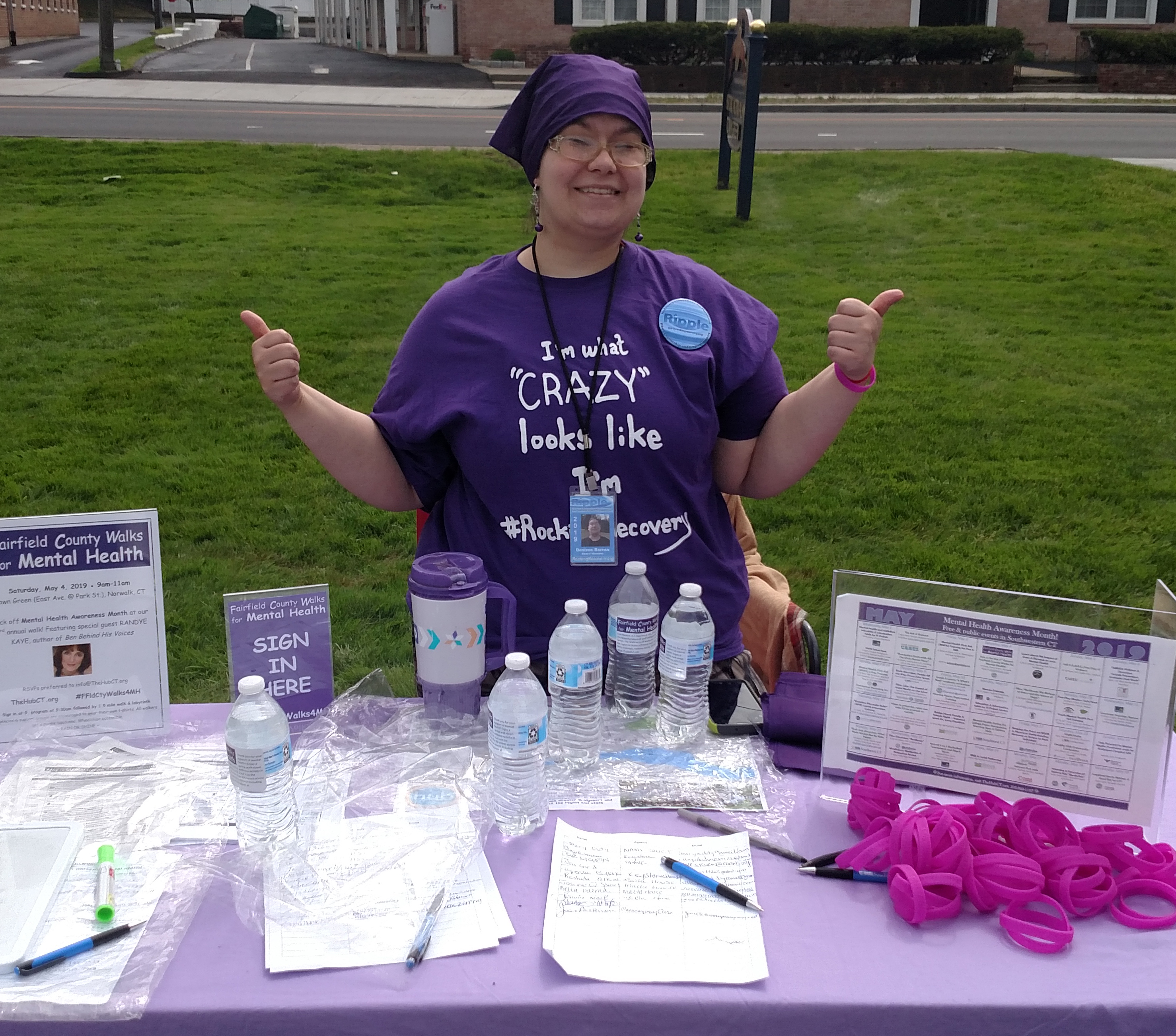
Desiree Barton is a Peer with lived experience within the mental health and addiction services system. She has come along way since age 7 when she first started talk therapy but also acknowledges that there are still obstacles to overcome, and some of those at times can be overwhelming. She has first-hand experience with anxiety, depression, PTSD, Fibromyalgia, and Diabetes.
She is an avid reader and loves to learn about new things, her passion for knitting and crocheting has been a positive, creative outlet for since the age of 4 and continues to this day. The only thing she loves more is working with and being around animals. In the future, she hopes to be in a position where she can train therapy animals for those in need. Since joining Ripple this year, Desiree has become interested in obtaining the training necessary to be a Certified Recovery Support Specialist…
“Right now, I don’t have the luxury of looking back on my struggles and seeing them from the other side, I am still in transition and seeking help. Plans for the future are starting to look up, Ripple and I are going to work together, helping me become an RSS myself. I think that is a big step in the direction of hope.” – Desiree
Page 2
It has been a good summer… On July 21st, Jeffrey Santo wrote what he thought was going to be a letter to the editor; it was later published as an op-ed on thehour.com. As mentioned on the cover he was awarded the Media Mogal Award by the Keep The Promise Coalition.
In early July Gov. Ned Lamont signed the mental health parity bill into law. Insurance companies will soon be required to provide annual reports that detail their mental health and substance abuse recovery coverage. Why is this so important to our community?
In October of 2012, the World Health Organization called depression a global crisis. On average, we lose 16 veterans and four active-duty personnel/reservists a day. In a March 2018 article, USA Today reported the suicide rate for children and teens between the ages of 10 and 17 was up an average of 73 percent from 2006 to 2016. USA Today also reported in April of 2018 that more officers and firefighters died of suicide than line-of-duty deaths in 2017.

There is a tremendous need for mental health, and just as it is in areas of education, homelessness, and nutrition programs, the funding required to support the services is in short supply. I am writing this letter today with the hopes of starting a conversation, one that could perhaps lead to fresh ideas and better ways to get people the help that they need.
In 2017 Connecticut made national headlines when reports of patient abuse surfaced at Whiting Forensic Services on the Connecticut Valley Hospital campus in Middletown. This July members of the Whiting state task force questioned whether patients would be treated more effectively in another facility. I believe one problem with the entire mental health system is that no one knows what effective inpatient care looks like, mainly because long-term inpatient stays are not productive.
My mental health diagnosis is depression, PTSD, and generalized anxiety disorder. It is estimated that one out of every five people in the United States live with some form of mental illness. It is also estimated that one out of every two people will experience a mental health crisis at some point in their lives. To properly care for all these people, the resources needed would bankrupt most states. I want to describe what the average inpatient setting looks like through the eyes of someone who has been in several different facilities, including Whiting.
Over 80 percent of our days on a mental health unit are spent drawing, writing, watching television, talking to other patients, or just sitting idle. We may talk to a social worker for 30-to-45minutes. If we see a psychiatric professional that day, the average interaction lasts fewer than 20 minutes. If we are lucky, there could be a couple of groups on weekdays.
Weekends are not productive at all, with most of the professional staff off the clock. A 24-hour-day living in an inpatient treatment setting roughly consists of 10-to-14 hours of sleep. Two to three hours are used up in professional interaction with doctors and staff. About an hour and 30 minutes by meals, and the remainder of the time is passed by whatever method the patient has access to on the unit. My question is, why does this service cost anywhere from $1,500 to $2,000 a day?
In a November 2017 article, the CT Mirror reported that the estimated yearly cost for a bed at the Connecticut Valley Hospital was as much as $560,000. Anyone who takes a close look at the numbers involved versus the services provided can easily see that we are not getting our monies worth. I agree that insurance should cover services related to mental health and addiction recovery. With that said, I also think it’s fair to ask treatment providers to justify the costs that in many cases are being paid for by Connecticut taxpayers.

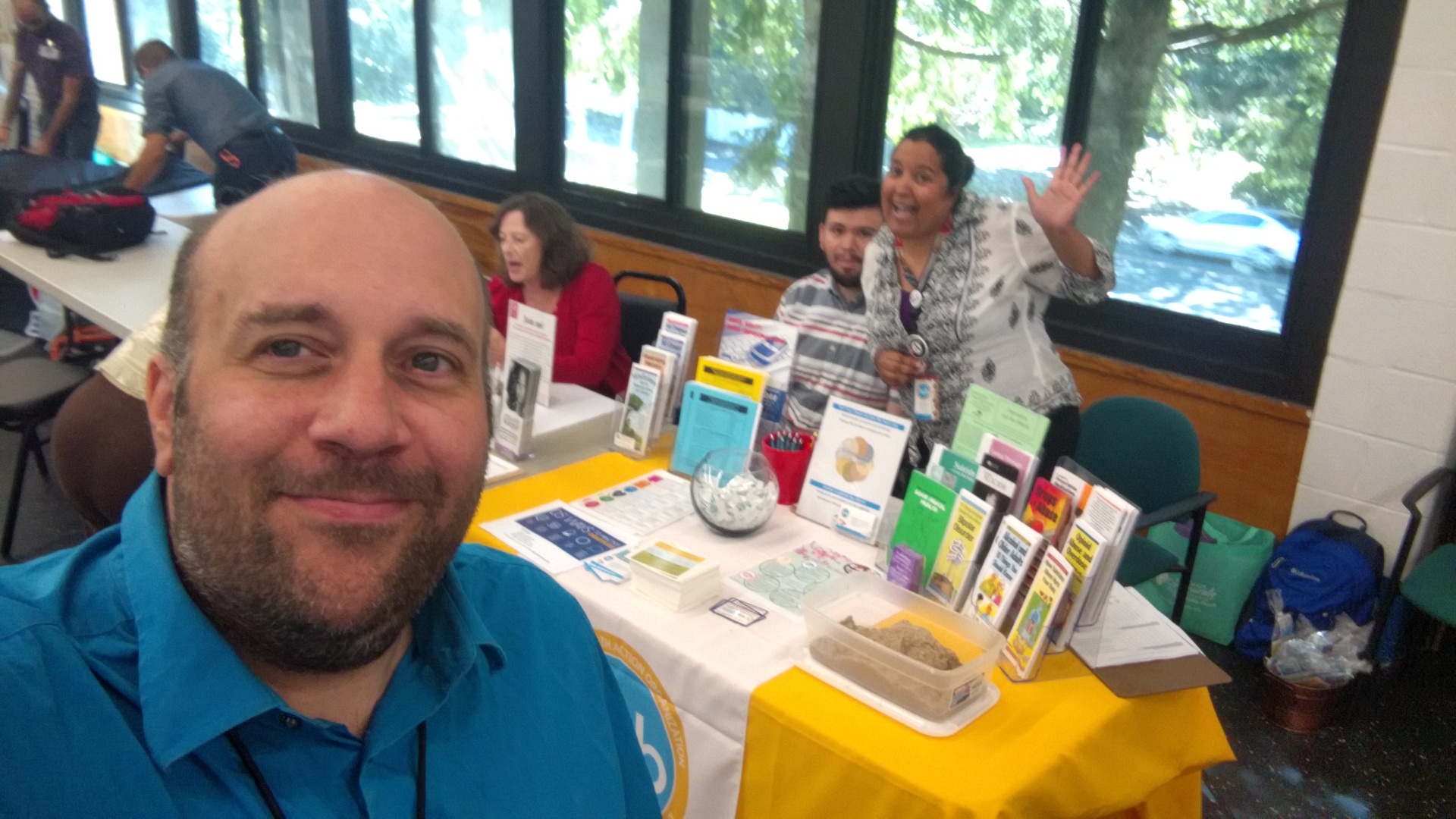
Hanging with The Hub! The Norwalk Senior Center hosted a health fair, and The Hub invited me to tag along. I met a lot of folks; it allowed me to help out with the free mental health screenings and talk a little about resources in the area. The Hub is the designated Behavioral Health Action Organization (RBHAO) for Southwestern Connecticut.
They support & coordinate behavioral health initiatives such as mental health, substance use, and problem gambling. If you would like to learn more about them and the areas they serve, please visit their website at www.thehubct.org
Page 3
www.RockingRecovery.org

Ripple’s site, RockingRecovery.org continues to grow! We officially launched as a community resource on May 1st, 2019, and since that time, it has taken on a life of its own. The most visited section of this site is the CT RESOURCE LINKS page where we have hundreds of programs and services for people in Connecticut who need help. As of the publication of this newsletter, there are 40 categories leading to over 840 agencies and providers who offer a combined 1,200+ resources within the state. This section of the site is icon-driven, which allows you to quickly scan through the services and find the help you need.
Over the last few months, several people have told us how impressed they are with the website, people who are involved with peer education have mentioned that they use it in their classes. We are both gratified and humbled that this is proving to be useful by the community, but we have a confession to make. The work and ideas being put into this website are not ours alone. Much of the creative influence of this site has come from people just like you.
Without the stories our peers have shared with over the last year, the site would be a lot more sparse. We not only understand the power of sharing our stories; we know the power of listening to yours. As a community, it is easy to see, the more we share, the more we grow.
One of our philosophies is you only need three things to help someone, hope, time, and compassion. It is our goal to show others out there that Connecticut offers a vast network of organizations, services, and programs for people living with mental illness and addiction… That they are not alone, and that people are willing to support them in their recovery.
Ripple’s mission is simple, as people with lived experience in the mental health and substance abuse services system, we seek to empower our peers. To use our voices to educate,

inform, and inspire new leaders in our community. We will bring new and innovative ideas to the recovery processes for the benefit of all. RockingRecovery.org is one of the tools that will help is be successful in that goal.
This website is made up of over 90 pages and has taken over 435 hours of work to get to where we are now. Currently, we are aware of more than a dozen agencies using our site to better serve their clients.
RockingRecovery.org has become a useful tool to help their clients get connected to outside services that improve the quality of their lives. We hope this will be picked up by more providers in the area and it can bring more help to those who need it.
A note from the webmaster:
RockingRecovery.org is a lot like a person’s recovery journey; it does not happen all at once, and at some points, it won’t go exactly as planned. We will hit obstacles and have setbacks, but with enough time, we will see our way clear and be able to move forward. It is our goal to create the most useful site possible for our community and peers. We will be continuously adding the CT ResourceLinks section and expect that it, just like recovery itself, will always be a work in progress.
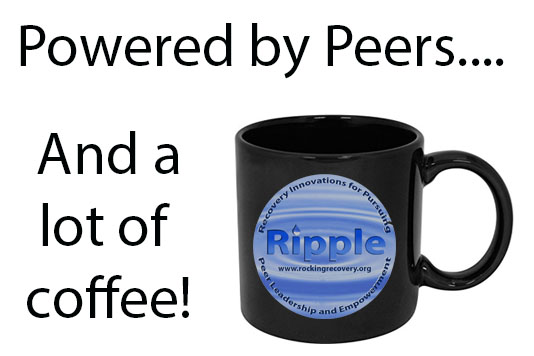
Page 4



